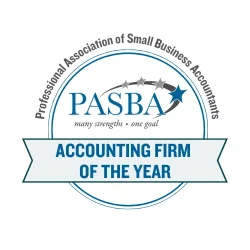Managing your business finances is one of the most important responsibilities of a service-based business owner. From tracking expenses to ensuring timely tax payments, accounting plays a crucial role in keeping your business on track. But how much should a service-based business spend on accounting?
This blog will help you understand what factors influence accounting costs, how much to budget, and why investing in professional accounting services can be a smart business decision.
Factors That Influence Accounting Costs
The cost of accounting services varies depending on several factors. Here’s what to consider when budgeting for accounting:
Size of Your Business
Larger service-based businesses with more clients, employees, or locations will naturally require more time and resources for accounting compared to smaller operations.
Volume of Transactions
The more invoices, payments, and expenses you process each month, the higher the accounting costs. For example, a freelance consultant may have fewer transactions than a service-based business like a marketing agency or cleaning company.
Services You Require
Not all businesses need the same level of accounting support. Here are common accounting services:
- Bookkeeping: Recording daily transactions, reconciling accounts, and categorizing expenses.
- Financial Reporting: Providing profit and loss statements, balance sheets, and other insights to help you understand your business’s financial health.
- Tax Preparation: Ensuring your business is ready for annual tax filings.
- Tax Planning: Calculating what you are likely to owe in the coming ear
- Tax Strategy: Developing proactive tax-saving strategies to minimize liabilities and take advantage of deductions, credits, and legal tax minimizing opportunities.
Industry Complexity
Certain industries have unique financial requirements. For example, a business providing professional consulting services may have simpler accounting needs than a business offering long-term contracts or requiring project-specific cost tracking.
Frequency of Services
Some businesses need daily or weekly accounting, while others may only need monthly or quarterly updates. The frequency of service affects the overall cost.
How Much Should You Spend?
A good rule of thumb is to allocate 1% to 5% of your revenue for accounting services. This percentage varies based on the size and complexity of your business:
- Small Service-Based Businesses:
Small businesses or sole proprietors with straightforward finances may spend $400–$600 per month, or around $4,800–$7,200 per year. - Medium-Sized Businesses:
Businesses with employees, higher transaction volumes, or more complex needs often spend $800–$2,000 per month, or about $9,600–$24,000 annually. - Larger Businesses or Complex Operations:
Large service-based businesses or those requiring extensive reporting, payroll, or tax planning may spend $2,500+ per month, which can exceed $30,000 annually, some even up to $80,000K annually.
Why Should You Budget for Professional Accounting?
While accounting costs may seem like an expense, they are an investment in the success of your business. Here’s why:
Save Time
As a business owner, your time is better spent serving clients and growing your business. Professional accountants handle the details, so you don’t have to.
Avoid Costly Mistakes
Errors in your bookkeeping or tax filings can result in fines, penalties, or missed deductions. Professional accounting services ensure your finances are accurate and compliant.
Gain Valuable Insights
Regular financial reporting helps you make informed decisions, like whether to hire additional staff, expand services, or adjust pricing.
Stress-Free Tax Season
Accountants keep your records organized year-round, so you’re always ready for tax season. They can also help you maximize deductions and credits.
How to Determine Your Accounting Budget
Here are a few tips to decide how much to spend on accounting:
- Evaluate Your Needs:
Determine the level of accounting support your business requires. A small business with minimal transactions will spend less than a medium-sized business with multiple employees. - Consider the Value of Your Time:
How many hours would it take you to handle your accounting? If hiring an accountant frees you up to serve more clients or grow your business, it’s worth the investment. - Shop Around:
Get quotes from reputable accounting firms. Look for clear pricing and services tailored to your business. - Plan for Growth:
As your business grows, your accounting needs may increase. Budget accordingly to ensure you have the support you need as your business evolves.
DIY Accounting vs. Hiring a Professional
Some service-based business owners attempt to manage their finances using accounting software like QuickBooks or Wave. While these tools can be helpful, they often require a significant time investment and may not provide the expertise needed to navigate complex tax laws or business growth strategies.
Hiring a professional accountant provides peace of mind and ensures your finances are in good hands.
A Smart Investment for Your Business
Accounting is a critical part of running a successful service-based business. By allocating 1% to 5% of your revenue to professional accounting services, you’re not just managing your finances—you’re investing in the growth and stability of your business.
To learn more about how we can support your business, visit our blog or check out resources like the U.S. Small Business Administration’s Guide to Accounting.
How J.R. Martin & Associates Can Help
At J.R. Martin & Associates, we specialize in helping service-based businesses manage their accounting efficiently and affordably. Our tailored services include bookkeeping, payroll, tax preparation, and more.
Need help deciding on the right level of accounting support for your business? Contact us for a free consultation.
Take control of your finances today with expert accounting services designed for service-based businesses. Let us help you spend less time on the books and more time doing what you do best!



